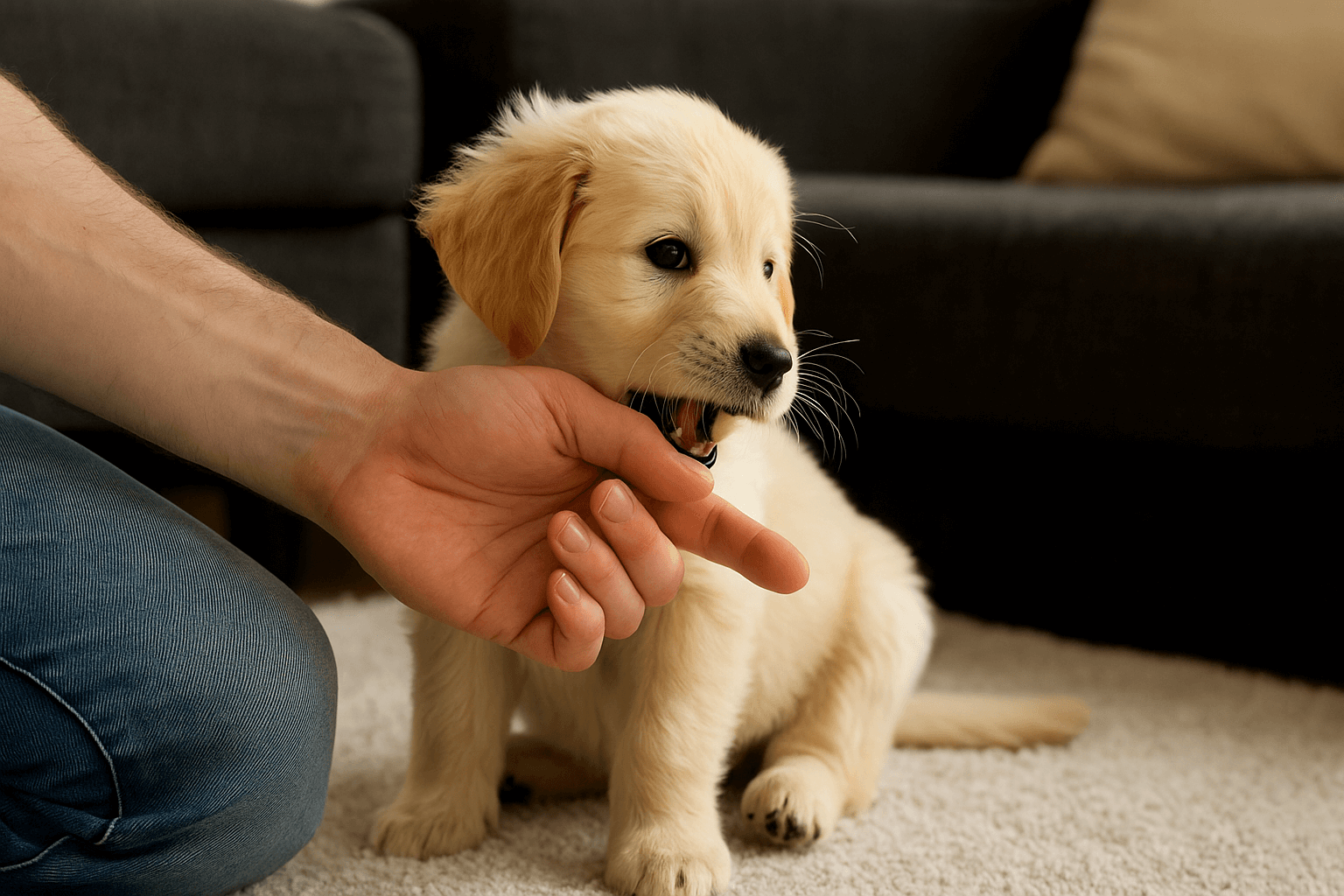Got a little land shark on your hands? You're not alone. Puppy biting is one of the most common and frustrating behaviors new dog parents face—especially when those sharp teeth find your fingers and toes. But don’t worry! With the right approach, you can teach your pup gentle manners while building a strong bond.
Why Do Puppies Bite Hands and Feet?
Before we jump into how to stop your puppy from biting hands, let’s talk about why they do it:
- Teething pain: Around 8 weeks old, puppies start losing baby teeth and biting helps soothe their sore gums.
- Exploration: Puppies use their mouths like babies use their hands—to explore the world.
- Play behavior: Biting is natural during play, especially with littermates.
- Lack of impulse control: Puppies haven’t yet learned bite inhibition—a skill they must develop through training.
What Is Bite Inhibition Puppy Training?
Bite inhibition is a pup’s ability to control the force of their bite. Teaching this early is critical. A dog who learns to moderate their bite is much less likely to cause harm if startled or scared later on.
Best Techniques to Stop Puppy Biting
Here’s what’s worked for me and countless pet parents I’ve coached:
1. Let Out a Yelp or Say “Ouch!”
When your puppy bites too hard, mimic what a littermate would do: yelp! Say “Ouch!” in a high-pitched tone and immediately stop play. This tells your pup that biting ends the fun.
2. Redirect With a Toy
Keep soft chew toys nearby. If your puppy bites your hand, gently offer a toy instead. This teaches them what’s okay to chomp.
3. Use Timeouts
If biting continues, calmly walk away or place your puppy in a quiet area for 30–60 seconds. Puppies quickly learn that biting = loss of playtime.
4. Stay Consistent
Everyone in the household should follow the same rules. Mixed messages confuse your pup.
5. Try Bitter Sprays (as a last resort)
Some pet parents have success with vet-approved bitter sprays on hands or furniture. Always test it first and pair it with training.
Puppy Biting Too Much at 8 Weeks?
At 8 weeks, intense biting is often teething—not aggression. Offer frozen carrot sticks, rubber teething toys, or a chilled wet rag for relief. Check out more healthy treats for dogs that are safe for teething pups!
Do’s and Don’ts for Training
- DO reward gentle behavior with praise and treats
- DO use toys to redirect energy
- DO be patient—it’s a phase
- DON’T hit, yell, or use force
- DON’T encourage hand play—it confuses them
Real Talk from Experience
When I brought home my border collie pup, Finn, he was a nibbler extraordinaire. I was covered in little teeth marks for weeks. The game-changer? Teaching “gentle” during treat time and yelping during play. Within a few weeks, he began mouthing instead of chomping—and eventually stopped altogether.
When to Seek Help
If your pup growls, snarls, or bites hard without backing off, consult a certified dog trainer or behaviorist. Rule out medical issues too—pain can sometimes look like aggression.
Final Woof
Training a puppy not to bite hands takes time, consistency, and lots of love. Remember, your puppy isn’t being “bad”—they’re learning how to be a dog in a human world. With gentle redirection and bite inhibition training, you’ll raise a polite pup who knows how to play nice.
Frequently Asked Questions (FAQs)
1. What age do puppies stop biting so much?
2. How do I know if my puppy's biting is aggression or teething?
3. Is it okay to let my puppy bite during play?
4. Should I punish my puppy for biting?
5. What toys help with puppy teething?
6. Can biting be a sign of boredom or overstimulation?

About SniffnTail
SniffnTail is your go-to destination for everything pets. From helpful advice, tips, and insights to thoughtfully selected products and resources, we’re here to support pet owners at every stage of their journey. Whether you're caring for a playful pup, a wise old cat, or anything in between, SniffnTail offers tools and knowledge to make pet parenting easier and more joyful.
Related Articles
 Training & Behavior • 7 min read
Training & Behavior • 7 min readScent Training for Dogs: Where & How to Start
Discover how to start scent training for dogs at home with fun, expert-approved tips for beginners, puppies, and future sniffer dogs.
 Training & Behavior • 7 min read
Training & Behavior • 7 min readGerman Shepherd Protective Instinct vs. Anxiety Disorders: How to Tell the Difference
Learn how to distinguish normal guarding from anxiety-driven aggression in German Shepherds. Understand behaviors, triggers, and practical solutions from a certified pet expert.
 Training & Behavior • 5 mins Read
Training & Behavior • 5 mins ReadWhy Microchipping Matters More Than Ever
Picture the devastation of losing your dog — only to discover there's no possible way for someone to recognize and return your pet. Microchipping is where that ends. As a permanent, foolproof form of pet identification, microchipping your dog greatly improves the possibility of safe return should they ever get lost or stolen.

